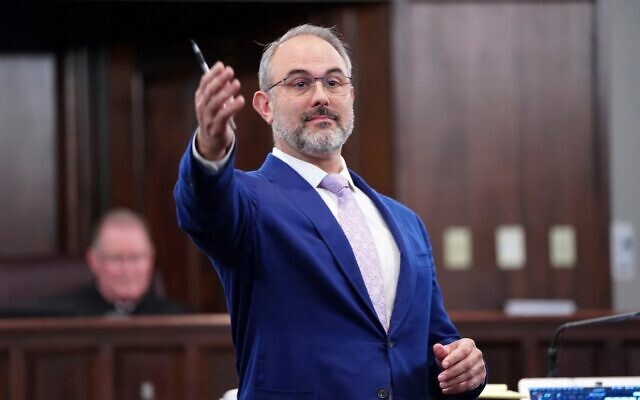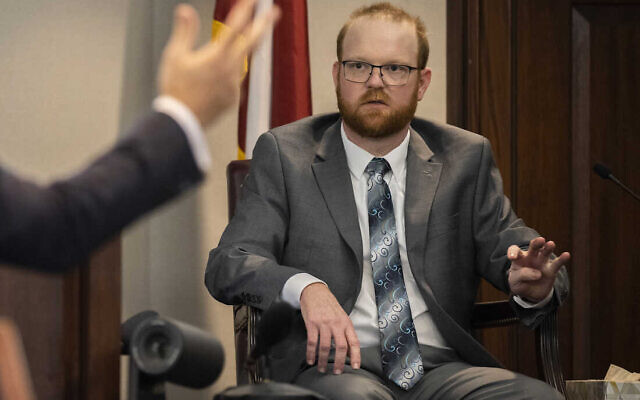Arbery Exclusive: Defense Attorney Shares His Experience
Jason Sheffield reflects on the Brunswick murder trial and verdict.
After 37 years with the Atlanta Journal-Constitution and now with the AJT, , Jaffe’s focus is lifestyle, art, dining, fashion, and community events with emphasis on Jewish movers and shakers.

Defense attorney Jason Sheffield, 48, is back home in Atlanta after a six-week stay in Brunswick, Ga., where the highly publicized trial of three white men accused of murdering a 25-year-old Black man, Ahmaud Arbery, on Feb. 23, 2020, took place. “My job is now done,” Sheffield told the AJT. “I was prohibited by the court to reveal many things like the victim’s mental illness, which led to this tragic end result … why it was necessary to restrain him. The case was won with one word: ‘jogger.’ Also, nationally the atmosphere prevented the court from seeing the facts fairly. Don’t get me wrong, I am not unprofessionally angry. I do think this case adds levels of wisdom to the trial system about how national sentiment has an impact.” Both Travis — Sheffield’s client — and Gregory McMichael were found guilty of felony murder. (Local attorney Bob Rubin was also part of the defense team.) Prosecutors intend to seek life in prison without parole for all three defendants.

Jaffe: You have 11 white jurors, why did you feel the outcome was so racially slanted?
Sheffield: Jurors up front stated that they could overcome the “spin” conversation in the media, etc. In the end they could not. Most of the potential Black jury candidates came in with the racist mentality that the defendant was guilty and deserved the death penalty.
Jaffe: Why the word “jogger”?
Sheffield: That word in itself [suggests] a sport for leisurely exercising. There was no evidence of that. “Jogger” was word one implying the pursuit of leisure and enjoyment, which was not the case; word two was ‘black,’ and word three was ‘white.’ What no one heard was the diagnosed state of the victim’s mental illness and the help on that front that he was not getting. Ultimately why he needed to be restrained.
Jaffe: Contrast this judge versus the recent one on the Kyle Rittenhouse case.
Sheffield: The latter allowed the use of the victim’s criminal history and mental illness. Also, granted it should have been said better, the request for not allowing the famous outside “Black ministers” in the courtroom should have been upheld. In other cases, spectators who evoke emotional reaction, even a controversial t-shirt, would not be allowed. Jurors can be swayed by emotion, which is contrary to fairness in the legal process.
Jaffe: That brings up the rally of supporters — some Jewish — who came to protest.
Sheffield: I did interact with Rabbi Rachel Bregman, who was lovely. Some came to support the fairness of the process and allowing differing opinions. Others came to defend the perceived attack on the Black community.
Jaffe: Who paid the legal fees for Travis McMichael?
Sheffield: His mother was a nurse and liquidated her retirement fund and that of her husband. There were a handful of community members who contributed maybe a few thousand dollars on that.
Jaffe: Will there be an appeal, and will you handle it?
Sheffield: That is being evaluated. Not by me. Appeals may be based on judicial error, not being handled well either by the judge or the attorneys. Could be based on error in the effectiveness of counsel which, of course, I would not handle.
Jaffe: Is your family happy to have you home?
Sheffield: My wife, and 14- and 12-year-old [children] are glad for me to be home; but they understand my job and commitment to protect fair justice and proper use of the law. I do not think they expected everyone to be watching me on TV. They have their own thoughts about difficult cases involving law and reason.



comments